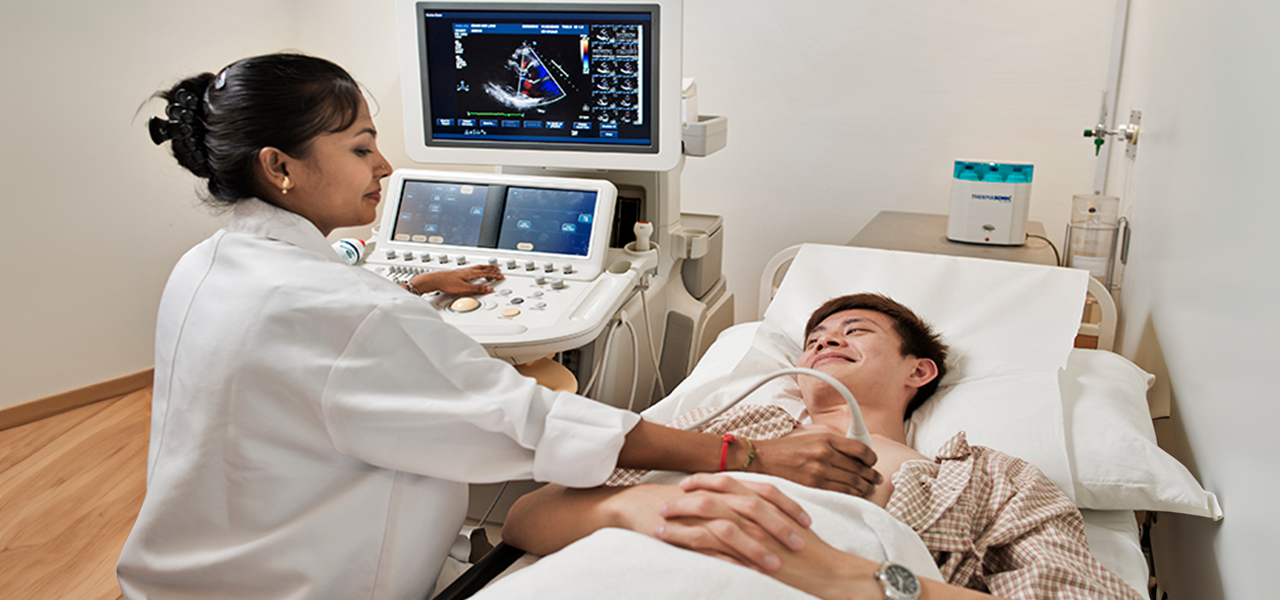
An echocardiogram is a type of ultrasound diagnostic test used by doctors to:
- Assess the overall function of the heart
- Determine the presence of any heart disease
- Follow the progress of any heart valve disease
- Evaluate the effectiveness of any medical or surgical treatment
An echocardiogram image is much more detailed than electrocardiogram, and involves no radiation exposure, thus making it much safer.
Common types of echocardiograms include:
- Transesophageal echocardiogram
- Stress echocardiogram
- Transthoracic echocardiogram
- Dobutamine stress echocardiogram
In order to prepare for an echocardiogram, the doctor may ask patient to not eat for a few hours beforehand, especially if patient is about to conduct a transesophageal or stress echocardiogram. Patient need to wear comfortable shoes if undergoing a stress echocardiogram. Patient is advised to arrange for transportation as patient will not be able to drive after the test, due to the sedative medication patient will receive.
Separate by the test as Transthoracic Echocardiogram patient can eat.
Services & Procedures Offered
Several kinds of echocardiograms are offered, and the doctor will assess patient’s condition to determine which best suits patient’s needs. Patient may receive one, or more, of the following echocardiograms:
Transthoracic echocardiogram (TTE): The most standard of all echocardiograms, TTE makes use of the same technology used to evaluate a foetus’s health before birth. An ultrasound beam (sound waves) is passed through patient’s body by a handheld device known as a transducer, and a picture of patient’s heart is produced.
Transesophageal echocardiogram (TEE):This test requires a transducer to be guided down patient’s throat, and into patient’s esophagus, which links mouth and stomach. A TEE provides a much clearer and detailed picture of the heart structures as the esophagus is closer to the heart. During the procedure, patient’s throat will be numbed, and patient will be medicated to allow for maximum relaxation of the throat.
Stress or dobutamine stress echocardiogram: This is used to investigate the possibility of decreased blood flow to the heart muscles. Ultrasounds of the heart will be taken before or immediately after patient is asked to perform a series of exercises (either walking on a treadmill, or riding a stationary bicycle). Alternatively, the doctor may administer dobutamine, a drug that will cause the heart to simulate being put under stress, should patient be unable to conduct any physical movement.
Doppler echocardiogram: This procedure is used to examine blood flow in the heart chambers, valves and blood vessels. A transducer will bounce sound waves off the blood cells in the body, and the changes in pitch (also known as Doppler signals) can be calculated to measure the speed and direction of the blood flow.





